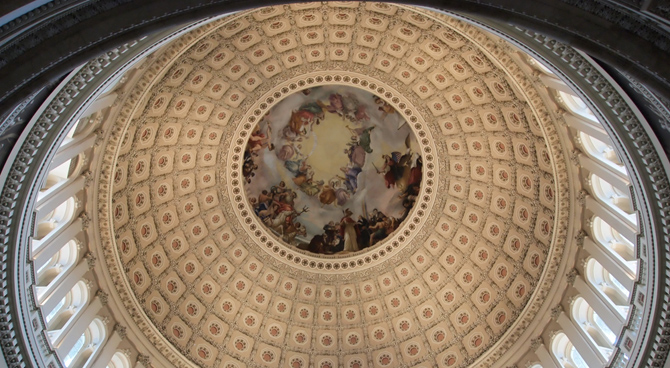I saw him put the country’s interests ahead of his own more than once. We coulduse a leader like that now.
By Phil Gramm
Aug. 16, 2022 6:23 pm ET
President Biden’s signing of the so-called Infl ation Reduction Act brings back four-decade-oldmemories of better economic leadership. On Aug. 13, 1981, President Reagan signed theOmnibus Budget Reconciliation Act into law. It unleashed a quarter-century of Americanprosperity, which made it possible to restore price stability and win the Cold War.
In this time of harsh rhetoric and political zealotry, it is comforting to remember Reagan notonly for what he did for the country but for the kind of man he was. Let me share twopreviously untold examples of his extraordinary leadership and humanity that I witnessedduring the making of the Reagan Revolution.
In 1980 I was a freshman Democratic congressman from Texas. Rep. David Stockman (R.,Mich.) and I off ered a substitute for President Carter’s fi nal budget. Reagan appointed Mr.Stockman director of the Offi ce of Management and Budget, and our bipartisan proposalbecame the foundation of the Reagan budget. Rep. Delbert Latta of Ohio, ranking Republicanon the House Budget Committee, and I jointly authored the Reagan budget in the House. Theword is overused, but I feel confi dent in calling the Gramm-Latta budget transformative.
While the budget was a dramatic change in public policy, the initial vote set only broadparameters, cut no programs, and was easily passed. The reconciliation bill implementing itwas the most diffi cult vote of the Reagan era. It contained the largest postwar cuts indomestic spending and eliminated three Social Security benefi ts to address the impendingbankruptcy of the system. While there were strong arguments for ending each of these add-on benefi ts, a vote to eliminate them meant touching the third rail and endangering alawmaker’s career.
As the House vote approached, some 30 Republicans asked for a meeting with the president todemand changes in the reconciliation bill. I was asked to join the discussion, and before themeeting I was taken to the Oval Offi ce to meet with Reagan. He asked me what I thought weshould do. I said that before off ering my advice I needed to remind him that three years ago Iwas teaching college economics and that I had never done anything remotely this importantin my life. Reagan smiled and said, “Well, neither have I.”
When we stopped laughing, I asked, “If we fi x one group’s problems, won’t another demandchanges? Where do we stop?”
Without responding, Reagan got up and led the way to the meeting. Sitting down at thecabinet table the president said, “You called this meeting, so let me listen to what you have tosay.” The fi rst speaker assured the president that he was for our program but he had problemswith his constituents. It quickly became clear that the attendees had planned out what theywere going to say, and almost every member raised concerns about his constituency. Whenthey had all spoken, the president said nothing for what seemed like five minutes as he lookedat each of the 30 members in puzzled silence.
“I have been confused,” he said finally. “I thought this vote was about the future of ourcountry. I didn’t know it was about our political constituencies.” He then got up and walkedout of the room. The stunned silence continued for several minutes and more than a fewcongressmen teared up as they got up to leave. When the fi nal vote was taken, not one personwho had been in that room voted no.
Reagan was more than a leader who knew who he was and what he wanted to do. He was aman who could keep things in perspective. With the economy enduring double-dip recessions,Republicans lost 26 House seats in 1982, and even with the support of conservativeDemocrats, Reagan no longer had a bipartisan conservative majority. In one of their fi rst acts,my Democratic colleagues voted to throw me off the Budget Committee. The president andRepublicans publicly urged me to change parties, but I had been elected as a conservativeDemocrat, and I felt that if I just changed parties, some people in my district might feelbetrayed.
The only honorable thing to do was to resign from Congress and stand for election as aRepublican. While many later saw this as a clever political move, it didn’t feel that way at thetime. No Republican candidate for Congress in the history of my district had ever receivedmore than 35% of the vote. On the eve of my resignation I called Lee Atwater, the president’spolitical director, to tell him what I had decided to do. He told me he believed that I would be
defeated and urged me simply to change parties. I said I thought I could win, and it was theright thing to do regardless, so I was going to do it.
Atwater rushed into Reagan’s offi ce and pleaded with him to call me and tell me not to resign.When the president called, he started by telling me that Lee was on the verge of having astroke—could I please explain what I was doing and why? I explained, and told him it was theright thing to do. To my astonishment, the president agreed: “People have a way of judging aperson’s character and knowing when a man is doing right.”
I didn’t discover until after I had resigned, run against nine Democrats and won that LeeAtwater had demanded that the president call me back that day. He predicted that I was goingto lose and, in the wake of the 1982 defeats, that it would be the beginning of the end of theReagan presidency. Reagan responded: “Lee, the whole world does not revolve around me ormy presidency. This is about
Phil Gramm, and he is doing the right thing, and I can live withwhatever the result turns out to be.”
To paraphrase Archie Bunker, we could use a man like Ronald Reagan again.
Mr. Gramm is a former chairman of the Senate Banking Committee and a nonresident seniorfellow at American Enterprise Institute.




